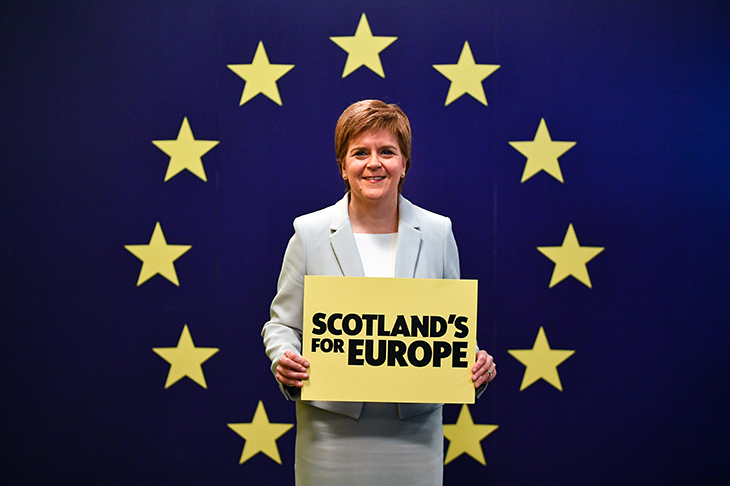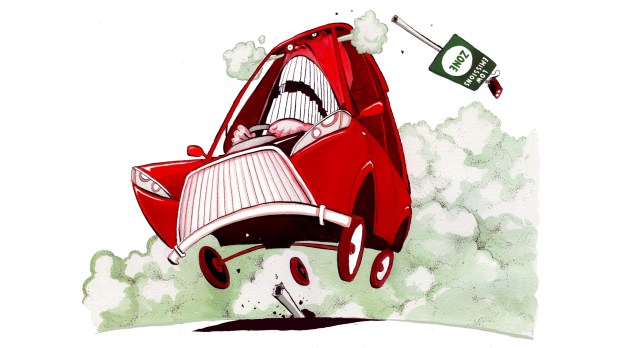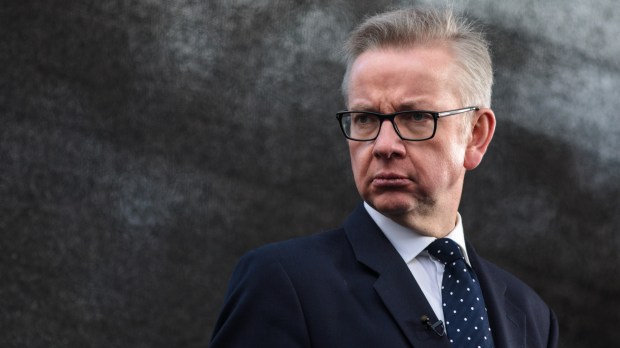Nicola Sturgeon, who claimed this week that ‘Scotland is rich enough, strong enough and big enough’ to take its place ‘among the proud, independent nations of the world’, is a slippery fish. She claims the case for Scottish independence will be strengthened by the UK’s departure from the European Union and yet she campaigned for Remain during the referendum and has done what she can to obstruct Brexit since. For instance, the 35 SNP MPs voted against Theresa May’s withdrawal bill three times. If they’d voted for it on the third occasion, it would have passed.
Does Sturgeon feel obliged to oppose Brexit because she’s convinced it will eventually happen and when it does she wants to be able to claim it’s a union-ending catastrophe she tried to prevent? That’s a slightly odd position for her to take, given that ending the union is her number one priority. I suspect she’d prefer the UK to be in the EU when the next Scottish independence referendum takes place — assuming there’ll be another — because she recognises that leaving will actually weaken the SNP’s case.
The critical thing to bear in mind is that if the SNP wins an indy ref after we’ve left, Scotland will have to apply for membership of the EU. In 2014, Alex Salmond claimed that if Scotland voted ‘Yes’, it could remain in the EU. And one reason he made that argument is that he recognised the weakness of the nationhood case if a ‘Yes’ vote meant leaving the EU as well. Why? In part because there’s a risk Spain might veto any application by Scotland to rejoin, as it wants to discourage Catalans from agitating for independence.
If an independent Scotland is un-able to join the EU, that would put the Scottish government in a difficult spot, given the country’s sizable annual deficit. Scotland’s deficit is higher than the UK average — an estimated 7 per cent of GDP, as opposed to the UK’s 2 per cent. It’s not hard to work out why. In 2018-19, Scottish public spending was 13.6 per cent higher per head than the UK average and revenue collected was 2.6 per cent lower. Scotland accounts for about a tenth of the UK’s population and a tenth of its economic output — but more than half of the increase in total annual government borrowing in cash terms.
How could the Scottish government possibly sustain that level of expenditure in the absence of the UK subsidy (about £10 billion a year)? It would have to go, tam o’ shanter in hand, to the bond market, but with the size of Scotland’s deficit, as well as the share of the UK’s debt it would inherit, the interest rates would be far more onerous than those currently available to the UK. Bankruptcy would soon follow. Would the IMF come to Scotland’s rescue, as it came to the UK’s in 1976? Maybe, but only at the cost of a huge reduction in spending on public services such as education, already a complete basket case under the SNP’s stewardship.
But let’s suppose the Spanish government waives its objection to Scotland joining. That wouldn’t exactly save the day. For starters, there would be the small matter of the hard border with the rest of the UK, not something conducive to trade with Scotland’s largest export market.
Then there’s the fact that Scotland would have to adopt the euro and become part of Schengen, both of which are non-negotiables for any new member states. But crucially, Scotland’s annual deficit of 7 per cent of GDP puts it over the 3 per cent threshold that automatically triggers the EU’s ‘excessive deficit procedure’, i.e. the EU would insist on an eye-watering austerity programme as a condition of joining.
And if the people of Scotland want to know what that would involve, I’m sure plenty of Greeks would be happy to tell them. (Youth unemployment of 40 per cent? Not sure that will go down well in Glasgow.) It would make the levels of austerity imposed by George Osborne and Philip Hammond — which the SNP ceaselessly complained about — look like a mosquito bite compared to full-blown malaria.
So that is the reason Nicola Sturgeon desperately wants to thwart Brexit. She knows that the case for independence would completely collapse in the event of the UK leaving the EU with Scotland in tow. From which it follows that if you want to save the union, you should be straining ever sinew to make sure Britain leaves on 31 October.
Got something to add? Join the discussion and comment below.
Get 10 issues for just $10
Subscribe to The Spectator Australia today for the next 10 magazine issues, plus full online access, for just $10.
You might disagree with half of it, but you’ll enjoy reading all of it. Try your first month for free, then just $2 a week for the remainder of your first year.















Comments
Don't miss out
Join the conversation with other Spectator Australia readers. Subscribe to leave a comment.
SUBSCRIBEAlready a subscriber? Log in